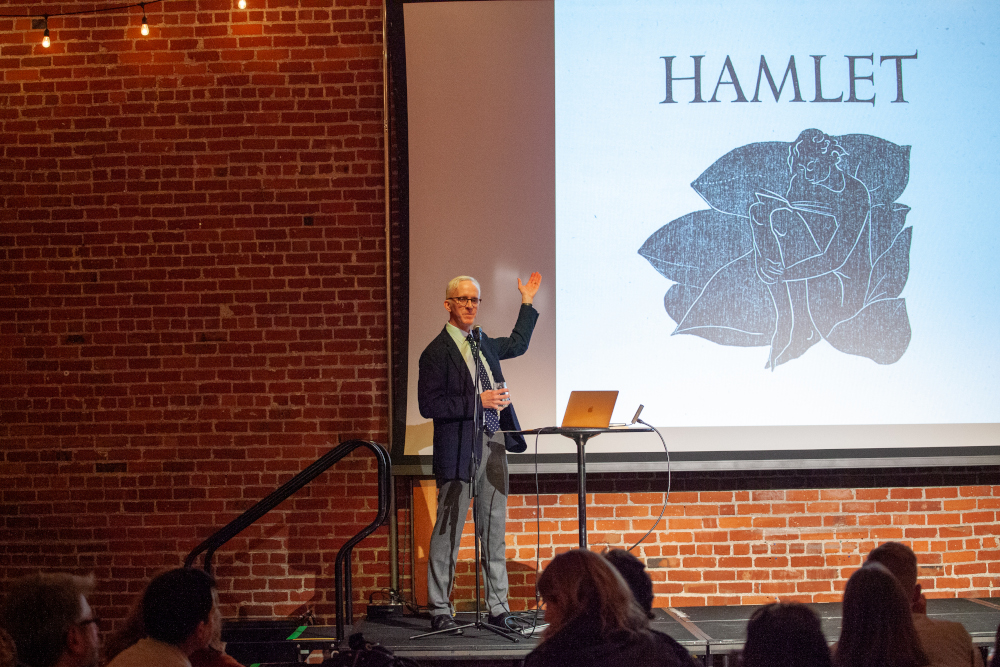Shakespeare asks

Sean Keilen’s lifelong fascination with Shakespeare began early, as an eight-year-old intrigued by a small-town production of Macbeth. Now, as a professor, Keilen channels Shakespeare to examine modern life and connect with both academic and non-academic communities.
Shakespeare remains relevant after 400 years because his work captures human nature, said Keilen, who directs the Shakespeare Workshop, a research center at The Humanities Institute that has hosted public performances, lectures, and discussions since 2013. During the pandemic, in collaboration with long-time partner local theater company Santa Cruz Shakespeare, the workshop organized live virtual productions and conversations in a series called Undiscovered Shakespeare.
Shakespeare’s plays hold up a mirror to modern life, providing a powerful vehicle for self-examination, Keilen said. A play that questions monarchy as an institution, for example, can spark conversations about the fragility of our current political system. “No one I work with—students, actors, people in the community—comes to Shakespeare for answers,” said Keilen. “They come for questions we're not asking because we're so focused on our own moment and place and culture.”
“Shakespeare is alien enough to allow us to look at ourselves differently and ask new questions of ourselves,” said Keilen. “But he's connected to us enough that we understand what he's talking about and why it has purchase for us.”
—Erin Malsbury

